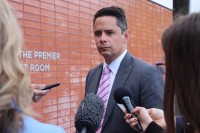Full Retail Contestability creates more problems than it fixes
Tuesday 20 Mar 2018Earlier this month, The West Australian reported that Treasurer and Energy Minister Ben Wyatt has shelved plans to explore full retail contestability.
In the article, Mr Wyatt mentions the example of the troubled east coast energy market and questioned whether retail competition “has delivered the benefits that it is intended to deliver”.
Mr Wyatt is right to keep the eastern states experience in mind. While there are some in the community who think opening the market up to private operators will be a panacea for high power prices, examining how the process has gone in other states should give anyone pause for thought.
Despite years of retail contestability, power prices have sky-rocketed in these states. Dr Bruce Mountain, Director at CME, noted late last year that if South Australia were a country, it would have the highest energy priced in the OCED. Typical households in New South Wales, Queensland and Victoria would all be in the top five.
In 2016, the Victorian Government launched an independent bipartisan review of Victoria's electricity and gas retail markets, to examine the operation of the Victorian electricity and gas retail markets. The final report, handed down in August 2017, found that deregulation had ‘failed’ Victorian energy users.
The Thwaites report found that, on average, Victorians were paying 21 per cent more than the cheapest price on offer for electricity and gas. It also noted that prices in Victoria were "unusually high" compared to elsewhere in Australia, saying there was "evidence of market failure". Deregulation began in 2002, but power prices have increased by 200 per cent since 2000.
Perhaps the most damning finding of the final report was that "retailer charge" — costs, marketing and profit — typically makes up 30 per cent of a household electricity bill, more than producing or distributing electricity. Victorian Energy Minsiter Lily D'Ambrosio noted that marketing “is a major factor in energy price rises in Victoria”.
Competition is good if it results in a better product and lower prices for customers. But power isn’t just any product; it is an essential service. When the evidence from other Australian states shows that full retail contestability has resulted in customers paying more to receive less, why would anyone want to sign WA up?
The current electricity system in WA provides a reliable, essential service. The goal is not to generate profit but to keep the state running and provide the best possible service to WA households and businesses. Not having to market itself allows income generated to be reinvested back into the system to create efficiency and maintain a standard of preventative maintenance that keeps us all safe.
Do we really want to see profit-driven corporations bombarding us with telemarketing and door-to-door sales reps as they charge us a premium to generate returns for investors? Do we really want the hassle of lock-in contracts and switching our providers every few years to make sure we aren’t getting overcharged for something as vital as electricity?
If we moved to full retail contestability, we might have more choice about the name on the power bill but we wouldn’t have much say about the amount due. It might sound like a nice idea on the surface, but like Mr Wyatt, when you take a closer look it becomes clear that the grass isn’t always greener.

